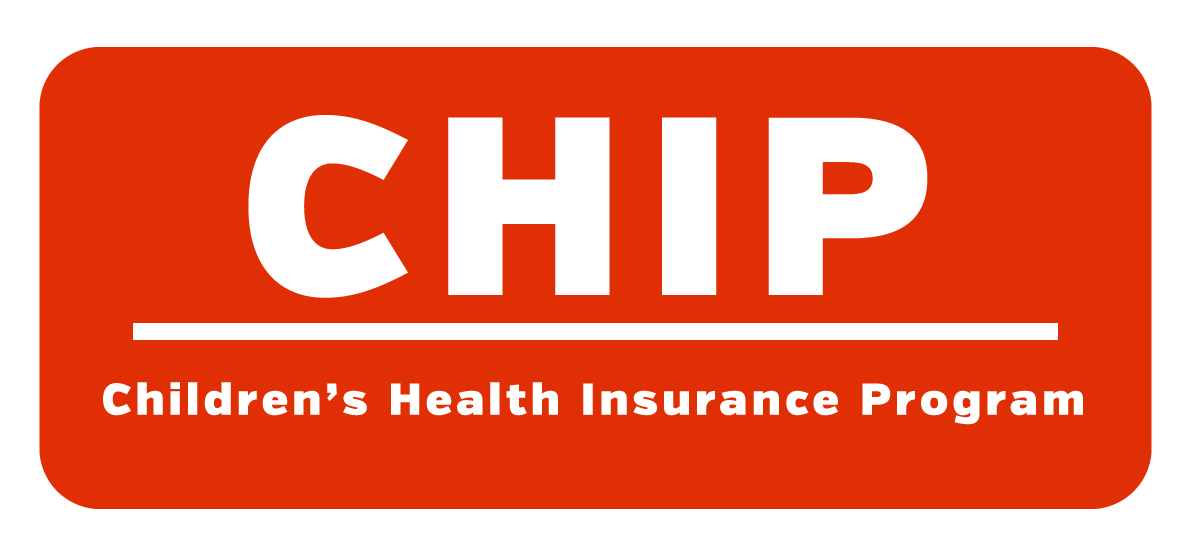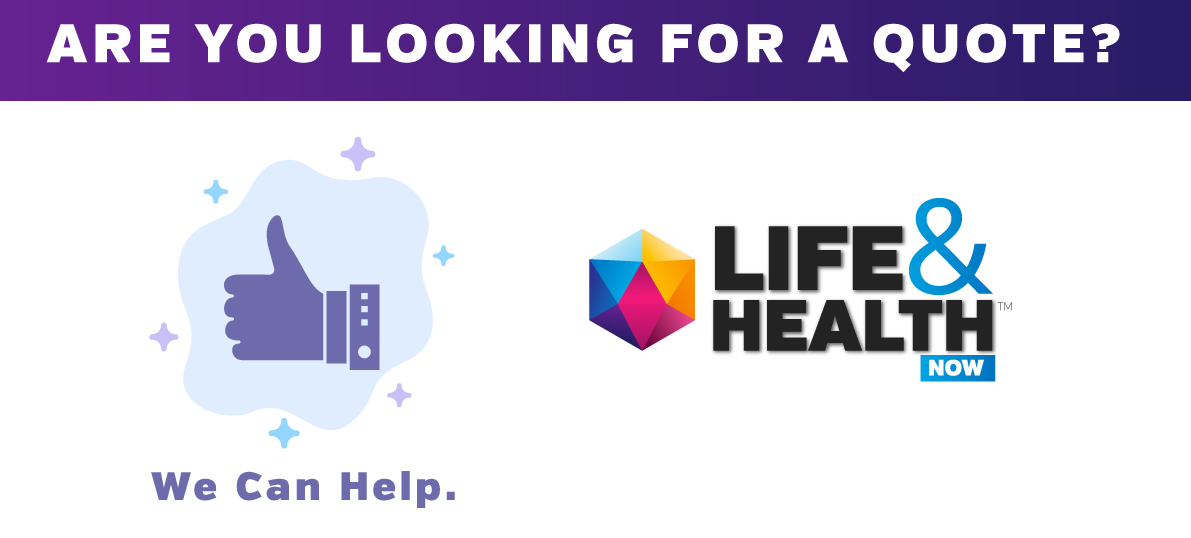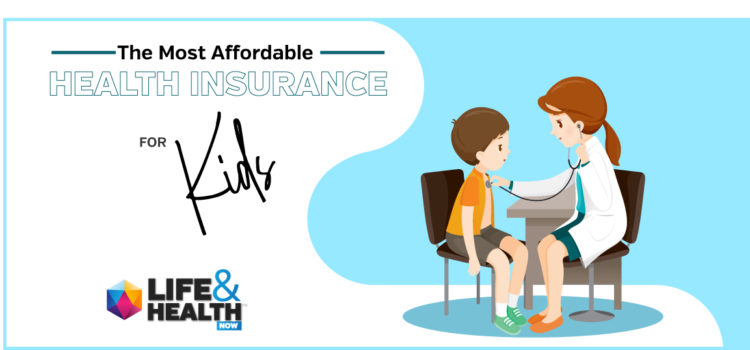Topics Covered On This Page: Click any of the links below and proceed to the section.
- Finding The Right Coverage for Your Child
- We Have Different Choices for Kids’ Health Insurance
- Private Family Plan
- What About Short Term Child-Only Insurance
- Children’s Health Insurance Program (CHIP)
- What Does CHIP Cover?
- What Does CHIP Cost?
- How to Sign Up for Kids’ Health Insurance
- CHIP Requirements
- Speak With A Licensed Agent Today
In a hurry? We understand, if you prefer to just receive a quote right away, you can use our Quick Quote request and find the lowest cost, cheapest health insurance premium with the coverage that fits you or your family today.
Finding The Right Coverage for Your Child
We all want our children to be healthy and feel their very best, right? In this post, we will take a look at some of your options.
Let’s take a minute to see how finding the right health insurance plan can assist you in protecting the health and well-being of your child.
We Have Different Choices for Kids’ Health Insurance
Since the passing of the Affordable Care Act (ACA), health insurance companies are required to permit children who are under the age of 26 years old to remain or be added on their parents health insurance plan.
Prior to the ACA passage, we saw many companies offering child-only health insurance plans, but since the laws have changed and now require insurance providers to allow parents to add their children (up to age 26), we don’t see as many insurance providers offering these types of plans.
These changes could make it difficult for parents who are looking for a child-only insurance option. If that’s you, you’re not alone. Together, we will investigate this area of health insurance for children.
Hopefully we will be able to point you in the right direction today, and assist you with considering a few of your available solutions and options.

Private Family Plan
Let’s begin with those who can’t obtain health insurance from their employer in a traditional way, or who are self-employed and do not have health insurance. For those in this situation one of their choices could be to purchase an independent family plan through the Affordable Care Act (ACA) marketplace. In this case, the child would be covered by way of a family plan which is more affordable than purchasing individual coverage for each family member through the ACA Marketplace.
Each of the plans that you find on the ACA Marketplace must conform to the 10 standardized essential benefits, which are requirements of the Affordable Care Act (ACA). These benefits guarantee the policy holder a certain degree of protection and peace of mind, through the essential coverage.
The essential benefits will cover both you and your child and/or children, and are designed to help ensure that your family’s medical protection covers the most essential needs such as hospitalizations, wellness screenings, vaccinations, vision and dental for children (under the age of 19), lab tests, prescription drugs, and a whole lot more.
So, as you can probably already see, for starters, when it comes to finding ways to provide health insurance coverage for your child, you do have options.
But let’s continue…
What About Short Term Child-Only Insurance?
If you’re only needing coverage for a short period of time, you may be considering what is known as a short term health insurance plan. These plans are designed to fill gaps in coverage, as the name implies, for a short period of time.
It’s important to point out that some states have laws which do not allow insurance companies to legally offer short term plans. Depending on where you live, that could eliminate short-term insurance as an option, but we’ll dive deeper into those states as we go through more options below.
This is a dynamic market with regulations subject to change, and you may find what is not an option today could become an option tomorrow. Likewise, you could also find what is an option today is not available tomorrow, so be careful and make sure you speak with a licensed agent before making any major decisions or plans. And it’s a good time to remind you that while we always do our best to bring you the most up to date and accurate information, this is not financial or legal advice and it definitely is not a substitute for contacting and speaking directly with a licensed agent. If you would like to speak with a licensed insurance agent, please be sure to use any of the buttons on this page to initiate your quote request and an agent will be happy to work with you directly to help answer your questions. And with that stated, let’s proceed.
You might be asking yourself, how is that possible? How can states be allowed to prohibit its residents from being able to purchase short-term health insurance?
The simple answer is, they can and they do. It’s important to not confuse the federal health care laws with the local laws. And it may also be helpful to clear the air now and explain that short-term health insurance policies offered in individual states are not regulated by the rules of the ACA. There are many differences and we will go through some of those here in a moment, but for now, we will have to accept that this is the way it is and there’s not much any of us can do about it other than to contact and work to elect legislators who will be more favorable to providing these kinds of options in the open market of their state.
With that said, the limitations are due to various state mandates, restrictive laws and rules, and insurance regulations of certain states. In many cases the rules are written in such a way that insurance companies simply can’t profitably offer short term health insurance policies to their customers. And while many states may have not passed laws prohibiting short-term insurance, the way the regulations are written, they don’t allow for enough people in the state to qualify. They make it so difficult for insurance companies to offer short-term insurance to the public, that they are basically forced to stop offering it in the state.
Since insurance companies, like most all companies, must make a profit in order to stay in business, you can take New York, New Jersey, Massachusetts, Rhode Island, Vermont, California, Colorado, New Mexico, Maine and Hawaii off the list of places where you’ll be able to find short term health insurance due to unfavorable state regulations and/or state mandates.
California passed a law in 2019 (SB910) prohibiting the sale of short-term health insurance plans as of Jan 1, 2019. Most of the other states in this list fall into the other category of having very restrictive laws which result in no insurance companies even offering short term plans.
Since each state is free to make up their own rules with respect to the short-term health insurance plans, you’ll find the length of allowable terms for short-term policies are all over the map.
Some states limit short-term plans to 3 months, others allow up to 6 months, and some (like Florida for example) allow plans for up to 364 days and a total duration time, including renewals, of up to 36 months.
Still, others prohibit renewals and cap the maximum length of time you are eligible for short-term coverage.
In New Hampshire, for example, short-term health insurance is limited to a maximum of six months and you can’t renew the policy. And if you’ve had more than 540 days of short-term coverage in the past 24 months, you can’t even purchase another short term plan.
Hawaii passed HB1520 which was signed into law in July 2018. As a result of its passage, there are no longer any health insurance companies even offering short-term insurance in the state. The law prohibits anyone who was eligible to purchase a health plan from the ACA Marketplace during the prior calendar year’s open enrollment period (which is basically everyone) from being able to purchase a short-term health insurance policy. This means that only people who are eligible for premium-free Medicare Part A, undocumented immigrants, or incarcerated individuals are eligible for short-term health insurance coverage in Hawaii. That does not leave enough people to create a market, and as of October 2018, there are no insurance companies left in Hawaii offering short-term health insurance policies.
If you think it sounds like the rules for selecting a short-term health insurance policy are a moving target, you would be right, they basically are.
Keep in mind that while short-term plans are less expensive than the plans offered under the ACA Marketplace, these short-term plans fall outside of the ACA’s regulations and there are many important differences which allow the insurance companies to offer them at a much more affordable price.
For example, pre-existing conditions are not covered under these types of plans. That’s a huge difference. If you or your child for example were diagnosed with a serious disease, then a short-term policy would not work because the applicant would most likely be rejected due to the prior illness. This is not the case with the individual market plans offered through the ACA Marketplace since they are required to accept all applicants regardless of any pre-existing conditions.
There are additional notable differences such as the coverage offered in short-term policies doesn’t include the ACA’s essential health benefits such as lifetime caps on your benefits.
Lifetime caps on benefits are not allowed from regular individual market plan policies regulated by the ACA, but are allowed in short-term policies.
Are you starting to see why these policies can be sold at a much lower premium cost as compared to ACA Marketplace plans? Our advice is to be careful when proceeding with a short-term policy, as there are important differences and depending on the state where you live, there are significant differences ranging from strict limits on the length of term, complicated renewal requirements and even being outright prohibited by law.
If you’re unable to add your child to a long term ACA compliant plan, and you’re looking for ways to save money in the process, then a short-term policy may be the answer you’re seeking for covering a short gap in health insurance coverage. Just don’t forget you’ll be forgoing many of the benefits offered under traditional ACA approved plans.

Children’s Health Insurance Program (CHIP)
For families which do not qualify for Medicaid (their income is above the maximum threshold), the Children’s Health Insurance Program (CHIP) is a low-cost health insurance program that may help. In some states, CHIP covers pregnant women as well. Each state has different rules which regulate the specifics of who qualifies, but we will cover some of the basics to help you decide if this is a program to investigate further for your child.
There are two ways to apply for CHIP:
Call 1-800-318-2596 (TTY: 1-855-889-4325) or fill out an application through the Health Insurance Marketplace. If it looks like anyone in your household qualifies for Medicaid or CHIP, they’ll send your information to your state agency.
You can apply and/or enroll (if approved) in Medicaid or CHIP any time of the year. Unlike the ACA Marketplace which has a pre-defined limited open enrollment period. If you qualify, your coverage can start immediately.
What Does CHIP cover?
CHIP benefits are different in each state. But all states provide comprehensive coverage, including:
• Routine Check-Ups
• Immunizations
• Doctor Visits
• Prescriptions
• Dental and Vision Care
• Inpatient and Outpatient Hospital Care
• Laboratory and X-ray Services
• Emergency Services
• States may provide more CHIP benefits. Check with your state for information about covered services.
What Does The CHIP Program Cost?
Routine “well child” doctor and dental visits are free under CHIP. There may be copayments for other services. Some states charge a monthly premium for CHIP coverage. The costs are different in each state, but you won’t have to pay more than 5% of your family’s income for the year.
How to Sign Up for Kids’ Health Insurance
Getting health insurance for a child begins by learning about your options. Before you begin researching private plan choices, make sure you don’t qualify for CHIP. CHIP is an exceptionally affordable option for a child’s health insurance — and in many states, you’ll pay $0 for coverage.
You can sign up for CHIP at any point throughout the year, but you need to meet your state’s minimum qualifications to begin. Each state has different standards for who qualifies. You can find out if you qualify for CHIP by calling 1-800-318-2596 or by applying for a plan through the ACA Marketplace. The Marketplace will automatically direct you to enrollment information in your state if your income qualifies you for CHIP.
You can add your child to your plan if you don’t qualify for CHIP and you have health insurance. Contact your insurance provider and request to add your child to your insurance plan. Your insurance provider will direct you to instructions to ensure your child is covered. Expect an increase in your monthly premium costs if you’re switching from an individual to a family insurance plan.
If you’ve just had a baby, you also qualify for a special enrollment period through the ACA Marketplace. You may want to buy your first insurance plan or switch insurance providers, so begin by creating an account on Healthcare.gov. Answer a few simple questions about your family and income, and you’ll be directed to the Marketplace. The ACA Marketplace will show you all plan options currently available in your state, as well as any subsidies you qualify for. You can also sign up for coverage for yourself and your child through the Marketplace.
You may not qualify for a special enrollment period and may be able to buy a short term plan until Open Enrollment begins. Short term health insurance plans are limited insurance options that will only help you pay for major medical expenses. Be sure to compare choices and thoroughly read your plan’s terms and conditions before you enroll in a short term plan.
CHIP Requirements:
Federal law provides states with the option to cover targeted low-income children and targeted low-income pregnant women under a separate CHIP.
In addition, states can provide coverage to certain groups that were historically excluded from CHIP, such as children or pregnant women that are lawfully residing, or have access to public employee coverage.
Descriptions are provided below:
- Age: Each State has different rules to regulate their CHIP program but for most states children up to the age of 19 are eligible.
- Insured Status: The child must be uninsured (determined ineligible for Medicaid, and not covered through a group health plan or creditable health insurance).
- Citizenship: Must be a US citizen or meet immigration requirements.
- Residency: A resident of the state, and eligible within the state’s CHIP income range, based on family income, and any other state specified rules in the CHIP state plan.
- Family Income: If your family income is less than $50,000 per year (for a family of four), you may qualify for Medicaid or the CHIP. For some states your family income may be even higher.
The following children cannot be eligible for CHIP:
- Inmates of a public institution.
- Patients in an institution for mental diseases.
- Children who are eligible for health benefits coverage under a State health benefits plan due to a family member’s employment with a public agency (unless a state qualifies for either the maintenance of agency contribution, or hardship exception described below).
Begin by creating a profile at Healthcare.gov to learn more about your state’s qualification standards.

After reviewing many of the options that are available for your family when it comes to insuring your child, hopefully you have a better idea as to some of your health insurance options and choices.
If you are interested in a private insurance policy quote, and feel that will best serve your family’s needs, we invite you to use our quote request feature below.
You’ll be connected to a licensed insurance agent who can help answer all of your questions and assist you with finding an affordable health insurance policy to protect your family and child.
Why take a risk of going without insurance when it comes to protecting your child’s health? In just a few seconds you can begin the process for receiving answers to your questions regarding your health insurance pricing from Life & Health Now. We’re ready to help you get the health insurance coverage that your child needs and deserves today.
Speak With A Licensed Agent Today. We're here to help answer your questions.
Choosing the right health insurance coverage for your family is a great way to protect your loved ones. Our licensed agents are here to help. Contact us today to get answers to your important health insurance questions.
